What is the bergamot
 Bashny.Net
Bashny.Net
About tea with bergamot know everything, but not everyone realizes it looks like this is the bergamot and that's it.
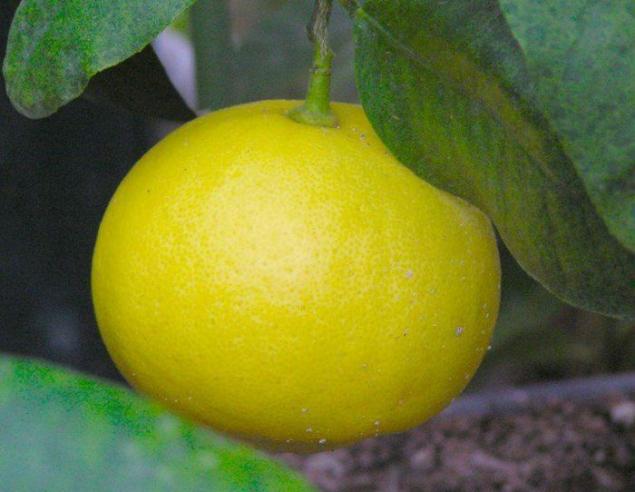
Bergamot - a plant family Rutaceae. This is a very large family: it has trees and shrubs, and herbs, and combines them one property - they are very much essential oils.
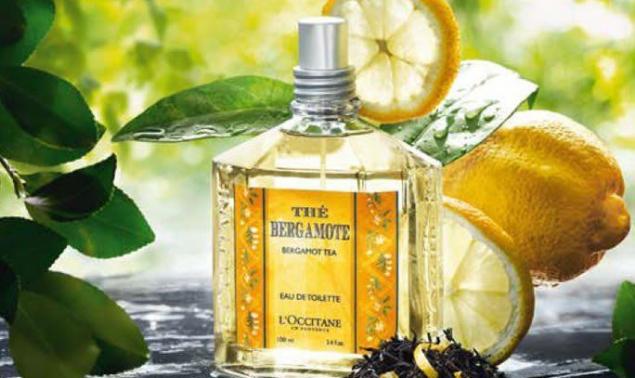
Citrus, which include bergamot, too, are a subfamily of rue. Bergamot is not growing in nature - it is believed that he derived a man. Accurate information about this, however, is not: it is assumed that it happened in China, but when it was, the scientists do not know exactly. There is another version, a very interesting bergamot is not a hybrid - its appearance is caused by a mutation of an orange.
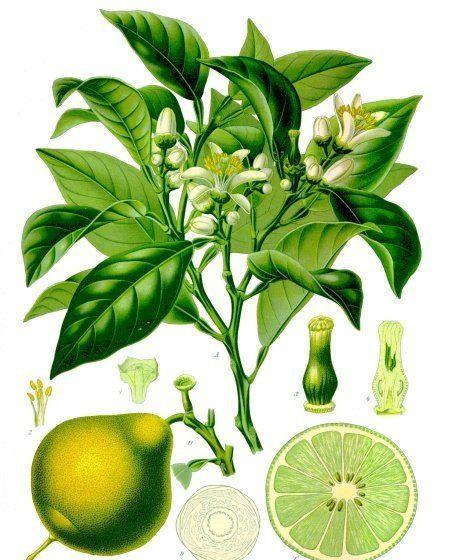
In Europe, bergamot began to grow in Italy - in the province of Calabria. The name of the fruit, according to one version, the name comes from the city of Bergamo - not far from this city were built plantations of bergamot, and at one time it was even called "Bergamo orange." It is believed that the use of bergamot first learned French perfumers, wanting to give a flavor of the spirits live. According to other sources, bergamot first used in Italy, created on the basis of his cologne essential oil, and it happened more in the XIV century, in one of the Florentine monasteries. Secrets of «aqua regina» - «the royal water" until the second half of the XVII century, could not find one, though many have tried. Only a pharmacist from Cologne was able to do it, so that today the majority of people think that cologne - «Eau De Cologne», «Cologne Water" - actually first appeared in this city.
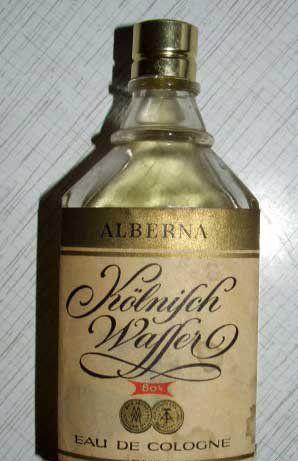
As you can see, the history of bergamot in human society began with its use in the manufacture of perfumes - the area where it has been successfully used today. Rather, in the perfumes and cosmetics used oil of bergamot, and very widely. In southern Italy, bergamot is grown until now: he's growing well, because he loves the heat and humidity. Other regions, where it is also growing, albeit in somewhat smaller quantities - China, India, the country's Black Sea coast of the Caucasus. Bergamot tree can reach 10 meters in height, and its spiny branches; But when the tree blossoms, its flowers are very beautiful and they smell just wonderful. Fruiting tree with the beginning of autumn to winter, and many citrus and bergamot sliced fruit like a lemon or orange. It should be noted that bergamot is often grown for essential oil: it is obtained not only from the rind of the fruit, but also from the flowers, leaves and even the young shoots of the plant.
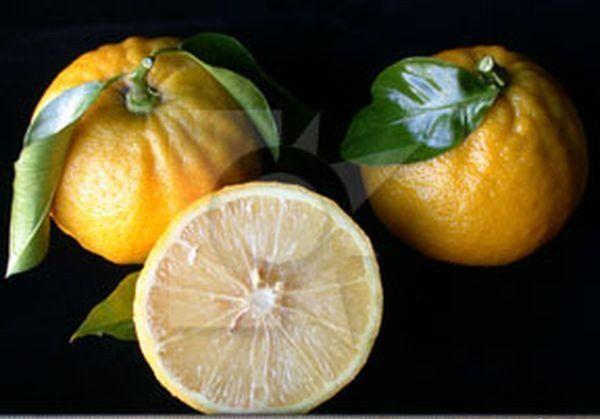
Bergamot has medicinal properties, and therefore its use in medicine. In those days, when there were no antibiotics, it was used as an antiseptic: it was made of balsam, very good for skin infections and inflammations. Even with serious wounds have used the fruit bergamot: it was cut and applied to the faulty site. Until now, bergamot used in the treatment of viral and colds for immunity and improve sexual function. Bargamot relieves spasms and soothes, improves digestion; Tea with bergamot, which is loved by many, helps cleanse the skin and the disappearance of age spots, tones and reduces enlarged pores. Fragrant, slightly spicy tea with bergamot different special, refined and delicate flavor, helps to relieve fatigue, relieve stress and tension from the consequences.

The most commonly used essential oil of bergamot, which is extracted fairly easily. If you squeeze the peel of bergamot hand, it is already possible to obtain oil - bright emerald green. The aroma of bergamot oil is amazing: it flower, and it felt shades of lemon and orange, but not sour, and sweet and fragrant. The most high-quality oil is considered to be just one that squeezed his hands to squeeze the peel when thousands of fruit, you get about 900 ml of oil. Bergamot oil is used to treat skin infections and acne, in the care of oily skin and scalp, to relieve irritation after insect bites - it helps to relieve stress from the skin.
In the perfume industry bergamot oil is used together with the oil of rosemary, orange, neroli: manufacturers of perfumes and colognes enjoy fruit and floral aromas of green fruit. The smell of this fragrance invigorates and refreshes, improves mood and helps maintain a balance between tranquility and excitement, as has a beneficial effect on the hypothalamus, is responsible for emotions.
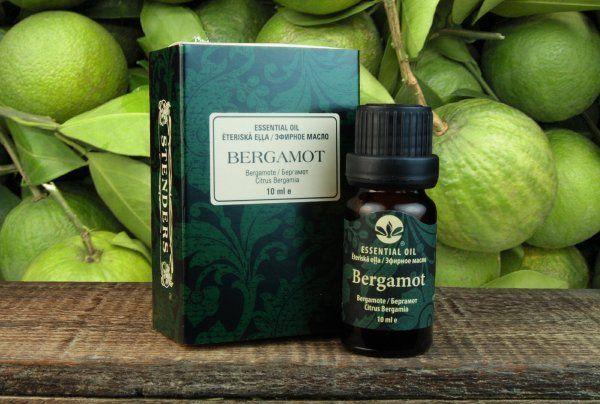
When a person is in an unstable emotional state, bergamot oil relieves anxiety and fear, despondency and depression. The human psyche has stabilized, it has raised self-esteem, a feeling of joy and happiness. It is his property, psychologists have learned to use to help people improve communication skills, encourage creativity, imagination and thinking. The fact that oil of bergamot helps concentration and clarity of thought, it is known for a long time, so those who goes on a difficult exam or an important job interview, it is advisable to breathe a mixture of oils of bergamot, grapefruit and lavender. Those who find it difficult to get up in the morning, it is recommended to take a shower with soap or gel, which includes bergamot. When headaches and tension in the neck massage to help with grape seed oil, which have essential oils of bergamot and neroli - a few drops. Massage the abdomen with bergamot oil helps to improve digestion, stimulate the appetite, especially those who need to recover from a serious illness. In cosmetology oil of bergamot is used for oily and combination skin: relieves inflammation and normalizes the sebaceous and sweat glands, eliminates harmful fungi and parasites. With a cold and runny nose bergamot oil is used to reduce fever, relieves inflammation of the nasopharynx, clears the sinuses. In aromatherapy today bergamot oil is used very often - both individually and in combination with other oils. Bergamot is also included in many dietary supplements are recommended for strengthening the immune system and improve your overall health. Bergamot oil has many beneficial properties: heals wounds, deodorizes, and even has a diuretic antihelminthic action. In nursing mothers, under normal tolerance bergamot oil, increases lactation.
On the palate the fruit bergamot pretty tasteless - it is sour-bitter, so cooking it is not caught, but in those countries where it grows, it is made marmalade or candied cook. Bergamot is unpretentious and can grow in the room, like a lemon or orange, the more so that its appearance is able to decorate any interior. The plant is not demanding on the soil, like other citrus fruits, and more resistant to drought, but loves light and moisture. In the summer, better make bergamot into the air, and in winter to keep the sun, but the room should not be too hot.
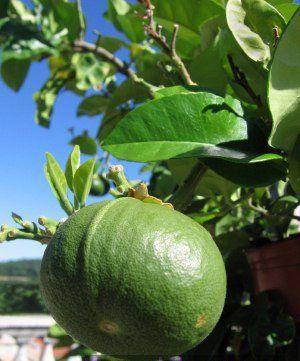
In the summer the plants watered abundantly, and in the winter a little - warm water. With regular fertilizing and proper formation of the crown plants will bear fruit, like other citrus fruits, from 1 to 4 times a year.
Source: p-i-f.livejournal.com

Bergamot - a plant family Rutaceae. This is a very large family: it has trees and shrubs, and herbs, and combines them one property - they are very much essential oils.

Citrus, which include bergamot, too, are a subfamily of rue. Bergamot is not growing in nature - it is believed that he derived a man. Accurate information about this, however, is not: it is assumed that it happened in China, but when it was, the scientists do not know exactly. There is another version, a very interesting bergamot is not a hybrid - its appearance is caused by a mutation of an orange.

In Europe, bergamot began to grow in Italy - in the province of Calabria. The name of the fruit, according to one version, the name comes from the city of Bergamo - not far from this city were built plantations of bergamot, and at one time it was even called "Bergamo orange." It is believed that the use of bergamot first learned French perfumers, wanting to give a flavor of the spirits live. According to other sources, bergamot first used in Italy, created on the basis of his cologne essential oil, and it happened more in the XIV century, in one of the Florentine monasteries. Secrets of «aqua regina» - «the royal water" until the second half of the XVII century, could not find one, though many have tried. Only a pharmacist from Cologne was able to do it, so that today the majority of people think that cologne - «Eau De Cologne», «Cologne Water" - actually first appeared in this city.

As you can see, the history of bergamot in human society began with its use in the manufacture of perfumes - the area where it has been successfully used today. Rather, in the perfumes and cosmetics used oil of bergamot, and very widely. In southern Italy, bergamot is grown until now: he's growing well, because he loves the heat and humidity. Other regions, where it is also growing, albeit in somewhat smaller quantities - China, India, the country's Black Sea coast of the Caucasus. Bergamot tree can reach 10 meters in height, and its spiny branches; But when the tree blossoms, its flowers are very beautiful and they smell just wonderful. Fruiting tree with the beginning of autumn to winter, and many citrus and bergamot sliced fruit like a lemon or orange. It should be noted that bergamot is often grown for essential oil: it is obtained not only from the rind of the fruit, but also from the flowers, leaves and even the young shoots of the plant.

Bergamot has medicinal properties, and therefore its use in medicine. In those days, when there were no antibiotics, it was used as an antiseptic: it was made of balsam, very good for skin infections and inflammations. Even with serious wounds have used the fruit bergamot: it was cut and applied to the faulty site. Until now, bergamot used in the treatment of viral and colds for immunity and improve sexual function. Bargamot relieves spasms and soothes, improves digestion; Tea with bergamot, which is loved by many, helps cleanse the skin and the disappearance of age spots, tones and reduces enlarged pores. Fragrant, slightly spicy tea with bergamot different special, refined and delicate flavor, helps to relieve fatigue, relieve stress and tension from the consequences.

The most commonly used essential oil of bergamot, which is extracted fairly easily. If you squeeze the peel of bergamot hand, it is already possible to obtain oil - bright emerald green. The aroma of bergamot oil is amazing: it flower, and it felt shades of lemon and orange, but not sour, and sweet and fragrant. The most high-quality oil is considered to be just one that squeezed his hands to squeeze the peel when thousands of fruit, you get about 900 ml of oil. Bergamot oil is used to treat skin infections and acne, in the care of oily skin and scalp, to relieve irritation after insect bites - it helps to relieve stress from the skin.
In the perfume industry bergamot oil is used together with the oil of rosemary, orange, neroli: manufacturers of perfumes and colognes enjoy fruit and floral aromas of green fruit. The smell of this fragrance invigorates and refreshes, improves mood and helps maintain a balance between tranquility and excitement, as has a beneficial effect on the hypothalamus, is responsible for emotions.

When a person is in an unstable emotional state, bergamot oil relieves anxiety and fear, despondency and depression. The human psyche has stabilized, it has raised self-esteem, a feeling of joy and happiness. It is his property, psychologists have learned to use to help people improve communication skills, encourage creativity, imagination and thinking. The fact that oil of bergamot helps concentration and clarity of thought, it is known for a long time, so those who goes on a difficult exam or an important job interview, it is advisable to breathe a mixture of oils of bergamot, grapefruit and lavender. Those who find it difficult to get up in the morning, it is recommended to take a shower with soap or gel, which includes bergamot. When headaches and tension in the neck massage to help with grape seed oil, which have essential oils of bergamot and neroli - a few drops. Massage the abdomen with bergamot oil helps to improve digestion, stimulate the appetite, especially those who need to recover from a serious illness. In cosmetology oil of bergamot is used for oily and combination skin: relieves inflammation and normalizes the sebaceous and sweat glands, eliminates harmful fungi and parasites. With a cold and runny nose bergamot oil is used to reduce fever, relieves inflammation of the nasopharynx, clears the sinuses. In aromatherapy today bergamot oil is used very often - both individually and in combination with other oils. Bergamot is also included in many dietary supplements are recommended for strengthening the immune system and improve your overall health. Bergamot oil has many beneficial properties: heals wounds, deodorizes, and even has a diuretic antihelminthic action. In nursing mothers, under normal tolerance bergamot oil, increases lactation.
On the palate the fruit bergamot pretty tasteless - it is sour-bitter, so cooking it is not caught, but in those countries where it grows, it is made marmalade or candied cook. Bergamot is unpretentious and can grow in the room, like a lemon or orange, the more so that its appearance is able to decorate any interior. The plant is not demanding on the soil, like other citrus fruits, and more resistant to drought, but loves light and moisture. In the summer, better make bergamot into the air, and in winter to keep the sun, but the room should not be too hot.

In the summer the plants watered abundantly, and in the winter a little - warm water. With regular fertilizing and proper formation of the crown plants will bear fruit, like other citrus fruits, from 1 to 4 times a year.
Source: p-i-f.livejournal.com
Tags
See also
Life in Dubai or whether it is possible to stay there for permanent residence
Slums of old Beijing
How to distinguish from a resident of the Siberian Far East
What's inside the ATM (7 photos)
Our Dubai
"Father of the Internet" Vint Cerf are explained what ICANN and how the Internet works
20 false Islamic inventions
Beautiful Russian roads
What is a "computer" before the Second World?
DEAD DOCTORS DO NOT LIE

















